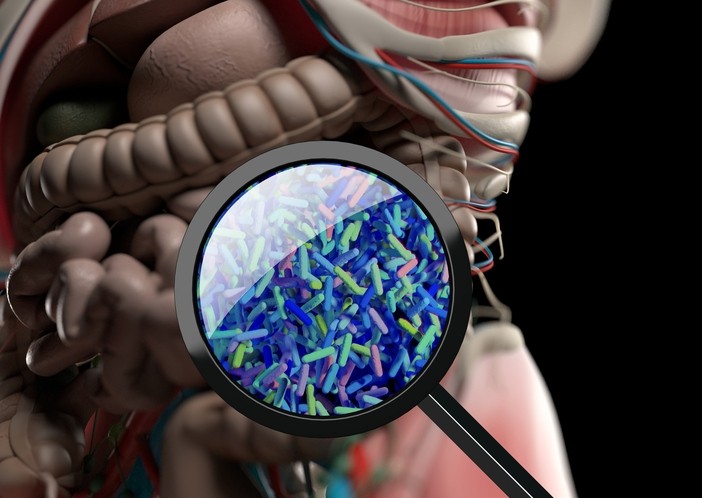SCFA supplement could improve efficacy of MS treatment

A new international study, involving roughly 300 subjects with MS, provides further evidence of the hypothesis that short-chain fatty acids (SCFAs) are reduced in autoimmune diseases, such as MS, as a consequence of an altered gut microbiome.
The research team from the Department of Neurology of Ruhr-Universität Bochum (RUB) at St. Josef-Hospital, in Germany, believe this decreased presence of SCFA's leads to reduced Treg cell function, which might be reversed by supplementation of SCFA's.
The authors believe this is the first study to show clinical effects and direct neuroregenerative effects of PA, linking the gut metabolome to the brain-immune axis.
SCFA's are processed from indigestible dietary fibers by gut bacteria and are known to have immunomodulatory properties. Propionic acid (PA), which is metabolised in the liver, has been shown to offer benefits of restoring insulin sensitivity, lowering cholesterol, and lowering food intake, as well as being effective on neurotransmitter synthesis, calcium influx, lipid metabolism, mitochondrial function, and immune activation (MacFabe, 2012).
Prior investigations have suggested that the rising number of MS cases and other autoimmune disorders worldwide can partially be attributed to environmental changes, particularly diet-consequent changes that might result in an altered gut microbiome (Berer et al., 2017). What's more, animal models of MS and inflammatory bowel disease, among others, provide incremental evidence that SCFAs such as propionic acid (PA) lead to a significant increase in the gut-associated Treg cell population, subsequent reduction of the systemic immune reaction, and accompanying disease amelioration (Haghikia et al., 2015, Smith et al., 2013, Hung et al., 2013, Arpaia et al., 2013, Berer et al., 2011, Kwon et al., 2013).
The link between PA and autoimmune disorders
Initially, the team, led by Professor Aiden Haghikia, used magnetic resonance imaging to confirm that PA may reduce brain atrophy (the loss of brain cells).
In a large cohort study, the team then collected serum and stool samples from MS patients and healthy controls (HCs) to investigate changes in gut SCFA metabolites, their bacterial producers, and the effect of dietary PA on immune-regulatory elements.
They found that PA was significantly reduced in the faeces and serum of MS patients compared with HCs, accompanied by a reduction in SCFA-producing bacteria.
They hypothesised that reduced gut SCFA-producing bacteria limit systemic PA availability and contribute to the Treg and Th17 imbalance observed in MS and other autoimmune disorders.
Proof-of-concept study
The team supplemented PA to therapy-naive MS patients and as an add-on to MS immunotherapy.
It is worth noting that current therapeutic interventions aim to suppress Th1 and Th17.
After two weeks of PA intake, the team observed a significant and sustained increase of functionally competent regulatory T (Treg) cells, whereas Th1 and Th17 cells decreased significantly.
After three years of PA intake, post-hoc analyses revealed a reduced annual relapse rate, disability stabilisation, and reduced brain atrophy.
Functional microbiome analysis revealed increased expression of Treg-cell-inducing genes in the intestine after PA intake. Furthermore, PA normalised Treg cell mitochondrial function and morphology in MS.
In short, propionic acid increased the differentiation and function of regulatory T cells in the gut. These cells stop excessive inflammatory processes and reduce auto-immune cells in autoimmune diseases like MS, says Professor Ralf Gold, Director of the Department of Neurology at St. Josef Hospital.
Therefore the findings suggest that PA can serve as a potent immunomodulatory supplement to MS drugs.
The authors note: "These retrospective results provide solid groundwork for prospective clinical phase II trials for supplemental PA treatment not only in MS but also for other autoimmune diseases, such as rheumatoid arthritis."
“Further research into this largely unknown organ and the knowledge gained from it will enable us to develop innovative dietary measures to complement the known therapeutics in the future,” adds Haghikia.
The study was conducted in collaboration with research teams at the universities of Berlin (Max Delbrück Center), Düsseldorf (Proteomics), Erlangen (Rheumatology), Freiburg (Neuropathology), Halle-Wittenberg (Nutritional Science), Hattingen (Neurology and Complementary Medicine), Copenhagen (Denmark), Leipzig, Los Angeles (USA), Ramat Gan (Israel) and Regensburg (Neurology).
Source: Cell
Duscha. A. et al.
"Propionic Acid Shapes the Multiple Sclerosis Disease Course by an Immunomodulatory Mechanism"
DOI: https://doi.org/10.1016/j.cell.2020.02.035






